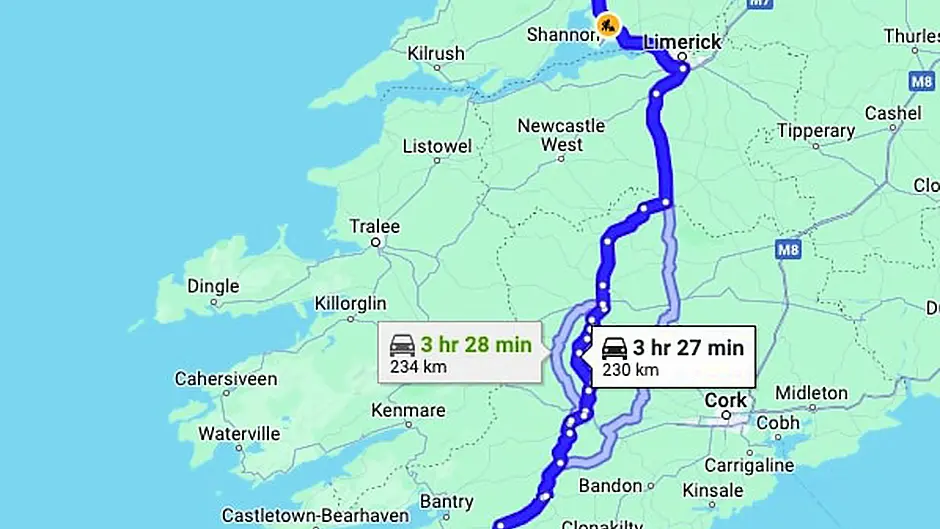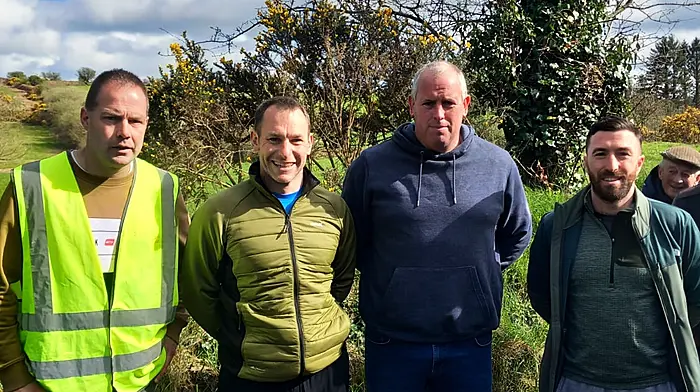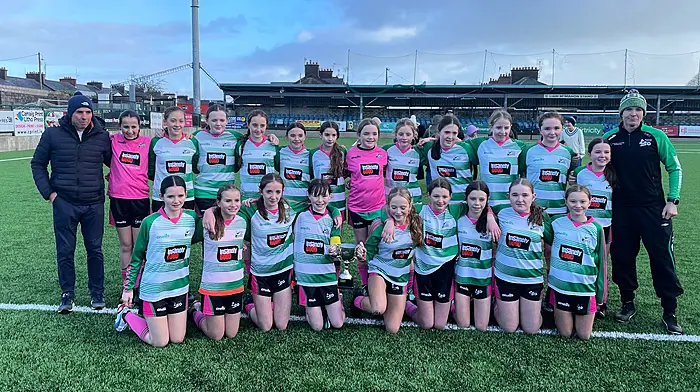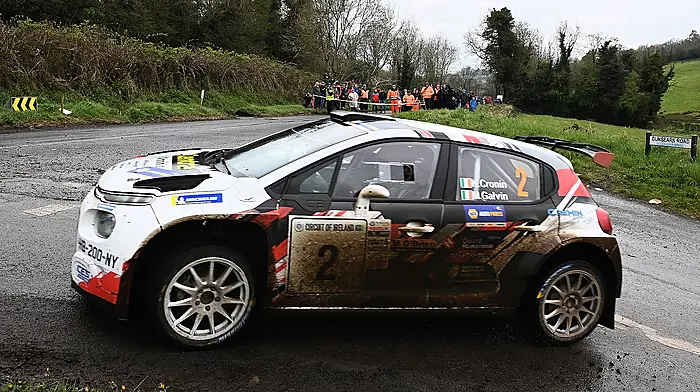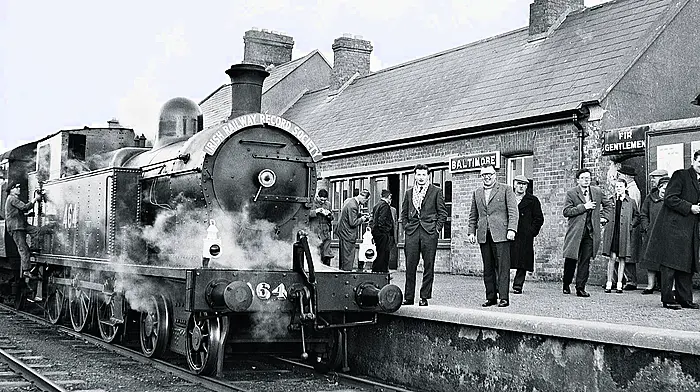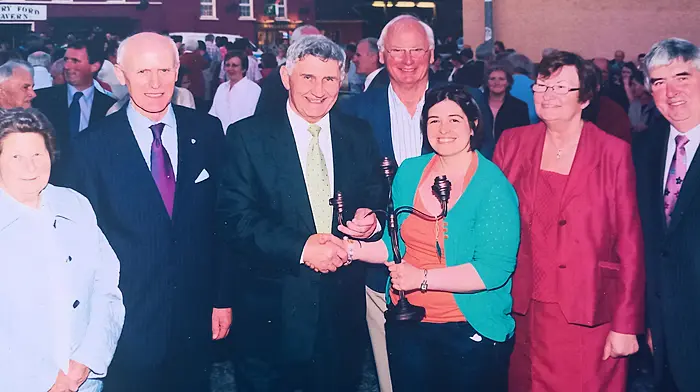
IMAGINE this. You’re named on the 36-strong Cork U20 football training panel, put in as much work as your team-mate yet don’t get selected on the 24-player match-day squad for the Munster U20 FC opener away to Tipperary. That stings, but that’s the nature of the beast, too.
Then you’re told you have to make your own way to and from Fethard Town Park in Tipp for the game on a Wednesday night, because you can’t travel with the match-day panel, and that you also can’t eat with the match-day squad afterwards. That was the reality for 12 young Cork U20 footballers who didn’t make the match-day panel.
There were a number of West Cork footballers who weren’t included in the match-day U20 panel for that championship tie in Tipp on April 10th, yet made the four-hour round trip to Fethard on a weeknight. While the match-day squad were then fed in the Firgrove Hotel in Mitchelstown, their team-mates – some getting a lift with their parents – drove past on the long spin home, having to make their own arrangements for food. That doesn’t seem fair, does it? But that’s the reality.
If you’re on a Cork U20 or minor football or hurling panel but don’t make the match-day squad for an away championship game – apart from provincial finals – you’re on your own. Make your own way to the ground. Sort out your own food, too.
We’ve heard similar stories with the Cork minor football team this season. The young Rebels made the trip to Tralee to take on Kerry in their Munster MFC opener on April 30th. Again a match-day 24 panel was named. Again, 12 players missed out (Cork named a training panel of 36), and these young guns, who put in the hard yards in training too, made the journey to the Kerry capital on their own on a Tuesday; it was also a school night.
Again, we’ll be parochial as a number of West Cork players were amongst this 12, from various local clubs. Some faced 270km round trips, others 230km, and so on. While the match-day squad was fed in the Manor West Hotel on the outskirts of Tralee town, the additional panel members drove past on the way home, not invited to eat with their team-mates. If the optics don’t look great, that’s because they’re not. It’s not the ideal first impression of life as an inter-county Cork footballer, is it? How much extra can 12 chicken and vegetable dinners cost? Surely the coffers can cover this small expense? Is there no room left on the 50-plus seater Cork buses that ferry players, management and coaches to games? Small gestures go a long way. Think of the impression this leaves on underage players, and their families.
‘Due to the increasing sizes of training panels at county level, it is current policy that matchday panels for away games at underage levels comprise of the 24 players on the matchday squad,’ Cork GAA said when we queried this practice.
‘All underage panels receive sufficient match tickets to cover the full training panel for all championship games.
‘For finals, all members of the training panel are included in the matchday party.’
Is the rise in Cork’s inter-county spending playing a role in this? Look at the increase in inter-county catering expenses from 2023 (€413,537) compared to 2022 (€361,953), and on team travel expenses from 2023 (€421,863) to the previous year (€341,525). Is this driving the new policy? Is this the reason that the additional Cork minor football panel players had to plot out their own route to Quilty in west Clare on a Tuesday night, May 7th for the Munster MFC semi-final against the home side that had a 7pm throw-in?
As the match-day squad were fed in a local hotel in west Clare afterwards, their team-mates again had to make their own arrangements for food, as well as miss out on the bus journey home. Surely these young players deserve more than just a match ticket for their efforts? Why is there a distinct difference between the treatment of the match-day squad and the additional panel players?
Look across the county bounds to Kerry – the Kingdom has a minor football training squad of 34, and the entire panel travelled and ate together for their away games in the Munster championship. For the Munster final in Páirc Uí Rinn, Kerry’s ten additional players sat in the dugout with the match-day squad, while Cork’s additional players sat in the stand on the opposite side of the pitch, away from their team-mates. Again, small details. Again, the optics from a Cork perspective don’t look great. ‘Inclusive,’ is how one person described the Kerry approach in the Munster series. Can we say the same of Cork’s?
***
43,972 fans watched Cork’s hurlers, 3,262 were in Ennis
NOT that we need any evidence to make the case that it’s Cork hurling first, Cork football second – we all know that, right? – last weekend’s championship action was another reminder.
On Saturday evening in Ennis, Cork footballers opened their All-Ireland SFC Group 3 campaign with a win against Clare in front of 3,262 fans at Cusack Park. Just a few weeks earlier, 12,059 fans were at the same stadium for the Munster final between Clare and Kerry.
Perhaps it’s no surprise that the group games in a competition where three of the four teams advance fail to capture the imagination of the majority. There’s a distinct lack of promotion, too. The sport world is bigger and busier than ever, yet the GAA continues to do what it’s always done and expect fans to keep digging deep to go through the turnstiles; that’s not going to cut it.
On Sunday afternoon in Thurles, 43,972 fans crammed into Semple Stadium to watch Cork hurlers add to the growing feeling they might yet have a say in the destination of the big prize later in the summer, as they hammered Tipperary by 18 points. The Munster senior hurling championship, as a standalone competition, is a crowd-puller, but the difference in attendance figures is stark.
When the Cork footballers beat Limerick in the Munster SFC quarter-final at SuperValu Páirc Uí Chaoimh on April 7th, there were 4,062 in attendance. When the counties clashed recently in the same stadium in the Munster hurling championship, Cork won in front of a sold-out 41,670 crowd.
In his weekly Star column, former Cork footballer John Hayes, who was in Ennis on Saturday evening, highlights the lack of support for the big ball fraternity.
‘These weekends should be promotional gold for both codes in Cork GAA and it feels like we aren’t maximising the opportunity for football in particular. However, we can’t always blame the logistics, and the culture of not following the Cork football team, unless it’s a big day out in Killarney or Croke Park, has often been flagged,’ Hayes writes.
‘Do Cork football supporters really deserve the success we seem to expect when compared to how the followers of less successful counties travel with their team? Watch the number of Donegal supporters who will travel down to Páirc Uí Rinn Saturday week for the next round game, and then ask yourself how many would realistically travel north if the fixture was reversed.’
When the Cork hurlers build momentum, the sea of Rebel red swells and it’s one of the great sights and sounds of the GAA, yet the Cork footballers, who enjoyed longer championship campaigns than the hurlers in 2022 and ’23, continually struggle to attract bigger crowds. The lack of success and recent struggles is a key reason, though can we point out the hurlers’ last Munster SHC triumph was in 2018.
Still, the Cork hurlers have the pulling power that the footballers don’t. That’s not going to change, but more can be done to boost the appeal of the Cork footballers.
Let’s remind ourselves of the #2024 – A Five-Year Plan for Cork Football that was launched in 2019. Amongst the objectives was to build ‘a stronger engagement of Cork GAA public with Cork football teams’. This box hasn't been ticked. Strategies listed included ‘Cork senior footballers will run an open session every six weeks in a club ground decided by a social media competition’ and ‘Cork senior footballers will commit to visit clubs around the county to promote football and engage young footballers in the various clubs.’ Have these targets been met? No, they haven’t.
Success on the football field will increase interest in the Cork footballers, but more can be done too to promote the footballers.

